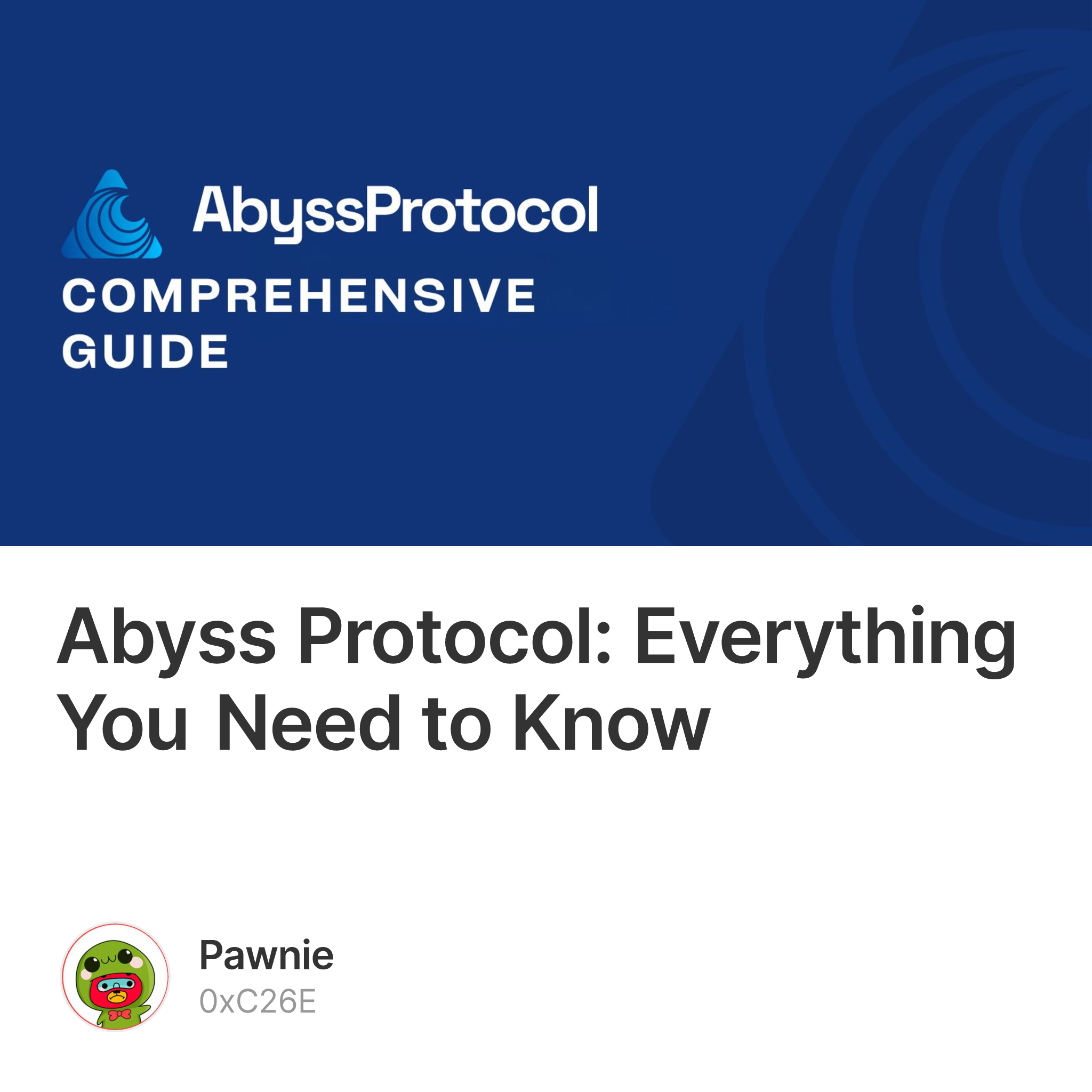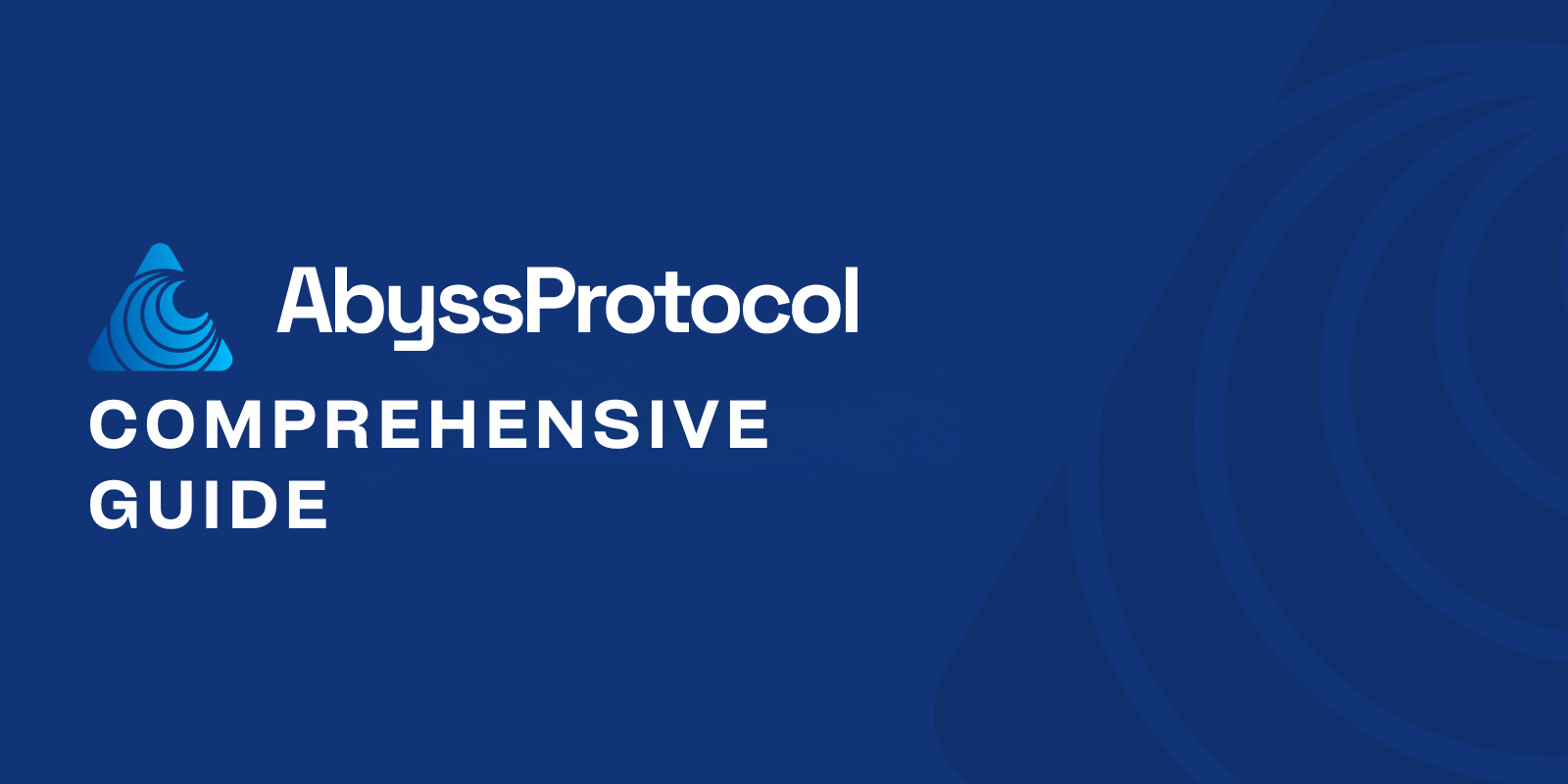What is Abyss Protocol?
Abyss Protocol is a platform that combines blockchain technology with AI, creating a decentralized ecosystem. Its goal is to democratize access to AI technologies, making them available to various entities, from startups to large corporations. The platform offers tools for creating, deploying, and managing AI models in a secure and transparent manner.
Why is Abyss Protocol Important?
Currently, AI is dominated by a few large companies, leading to issues such as lack of transparency, privacy risks, and monopolistic control. Abyss Protocol addresses these problems by creating an open, decentralized ecosystem that ensures security and transparency through blockchain technology, thereby increasing trust in AI.
Democratizing Access to AI
Problems Associated with Centralized AI
Centralization of AI leads to:
-
Lack of transparency: Companies do not disclose how their AI algorithms operate.
-
Data privacy: Centralization increases the risk of privacy breaches.
-
Monopolistic control: A few companies limit innovation and access to AI.
-
Inequality of access: Smaller companies and individual creators have limited access to advanced AI technologies.
How Does Abyss Protocol Change This Landscape?
Abyss Protocol offers a decentralized ecosystem that allows for the creation and deployment of AI models without central control, ensuring transparency through auditable operations, minimizing privacy risks via blockchain, and providing tools and resources to everyone, thus fostering innovation.
Decentralization and Blockchain
The Role of Blockchain in Abyss Protocol
Blockchain ensures data immutability, transparency, security, and decentralization, eliminating central intermediaries and allowing for the fair distribution of AI resources.
Benefits of Decentralization in the Context of AI
Decentralization in Abyss Protocol promotes innovation, fair access to advanced AI technologies, privacy protection through distributed data, and accountability and trust via transparent and auditable AI operations.
Open-Source Innovation and Ecosystem
How Does Abyss Protocol Support Open-Source Development?
Abyss Protocol supports open-source development by providing public code repositories, collaborative projects, grants, and rewards for developers, as well as technical support and training.
Key Components of the Abyss Protocol Ecosystem
Abyss Protocol consists of several key components, including:
-
AI L2 (Layer 2): A layer optimized for AI processing.
-
SDK: Tools for integrating AI functionalities into applications.
-
Privacy AI: Data privacy protection.
-
Nodes: Decentralized computational nodes.
-
Proof-of-Intelligence: A consensus mechanism evaluating AI model performance and quality.
-
AI Guardian: A system monitoring AI operations' security.
Technologies Used in Abyss Protocol
AI L2 (Layer 2)
AI L2 is a layer optimized for AI tasks, providing high performance, low latency, scalability, and integration with blockchain.
Software Development Kit (SDK)
The Abyss Protocol SDK facilitates AI integration with applications, offering predefined modules, an abstraction layer, deployment and management tools, and libraries for Web3 integration.
Privacy AI
Privacy AI includes privacy protection technologies such as federated learning, homomorphic encryption, and compliance frameworks for regulations like GDPR.
Proof-of-Intelligence
What is Proof-of-Intelligence?
Proof-of-Intelligence (PoI) is a consensus mechanism in Abyss Protocol that evaluates and verifies AI models' performance and quality, promoting fairness and transparency through a system of rewards and penalties.
How Does It Work and What Are Its Benefits?
The PoI mechanism relies on stake-based validation, model performance evaluation, rewards for improvements, and penalties for low-quality services, enhancing AI service quality, motivating innovation, and ensuring transparency and fraud protection.
Monetization and Revenue Sharing
Economic Model of Abyss Protocol
The economic model of Abyss Protocol ensures fair value distribution, including:
-
Pay-per-use: Users pay for actual AI service usage.
-
Subscriptions: Subscription models for high-volume users.
-
Token staking: Passive income opportunities through Abyss token staking.
-
Data monetization: Data providers earn by sharing datasets for AI training.
-
Compute resource sharing: Node operators are rewarded for providing computational power.
How Are Ecosystem Participants Rewarded?
Participants in the Abyss Protocol ecosystem are rewarded based on their roles:
-
Developers: Receive revenues generated by their AI services.
-
Data providers: Compensated for providing valuable datasets.
-
Node operators: Rewarded for providing computational power.
-
Token stakers: Receive a share of network-generated revenues.
-
Proof-of-Intelligence participants: Rewarded for participating in AI model validation and evaluation.
The economic model of Abyss Protocol supports long-term development and innovation in the AI ecosystem.
Use Cases and Potential Applications
Examples of Applications Built on Abyss Protocol
Abyss Protocol offers broad AI application possibilities, such as:
-
DeFi: Smart contracts for risk analysis, automated trading, and portfolio management.
-
Identity management: Secure identity management systems.
-
Data analysis and predictions: Applications for analyzing large datasets.
-
Healthcare: Supporting diagnostics and personalized treatment.
-
Logistics: Optimizing delivery routes and inventory management.
Potential Sectors and Applications
Abyss Protocol has the potential to revolutionize sectors such as finance, healthcare, logistics, marketing, education, and human resource management.
Future Vision and Roadmap
Long-Term Goals of Abyss Protocol
Abyss Protocol aims to create global AI infrastructure, democratize AI, ensure AI interoperability, and establish ethical AI governance.
Future Plans and Development
Abyss Protocol's plans include advanced privacy preservation techniques, cross-chain interoperability, an AI model marketplace, natural language interfaces, AI in decentralized finance (DeFi), quantum-resistant cryptography, research collaborations, and organizing hackathons and AI challenges.
Conclusion
Key Takeaways
Abyss Protocol is a revolutionary platform that combines AI with blockchain, offering a decentralized and transparent ecosystem for AI technologies. Key aspects of Abyss Protocol include democratizing access to AI, a decentralized architecture, an innovative Proof-of-Intelligence consensus mechanism, a fair economic model, and extensive AI application possibilities across various sectors.
Important links:
🔚
If you found this article valuable, mint it and follow @pawnie_

